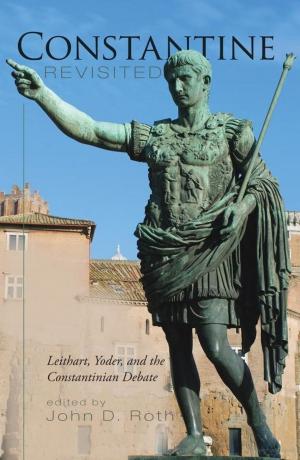Finding Grace with God
A Phenomenological Reading of the Annunciation
Nonfiction, Religion & Spirituality| Author: | Rose Ellen Dunn | ISBN: | 9781630873950 |
| Publisher: | Wipf and Stock Publishers | Publication: | July 30, 2014 |
| Imprint: | Pickwick Publications | Language: | English |
| Author: | Rose Ellen Dunn |
| ISBN: | 9781630873950 |
| Publisher: | Wipf and Stock Publishers |
| Publication: | July 30, 2014 |
| Imprint: | Pickwick Publications |
| Language: | English |
Finding Grace with God: A Phenomenological Reading of the Annunciation engages in an interweaving of phenomenology, mystical theology, and feminist philosophy to unfold a theopoetic interpretation of the narrative of the Annunciation in the Gospel of Luke. It begins with a discussion of the foundational phenomenologies of Edmund Husserl and Martin Heidegger and then moves to the more recent work of several French phenomenologists, including Paul Ricoeur, Jean-Louis Chretien, and Michel Henry. The interpretation is then expanded through the philosophies of Luce Irigaray, Jean-Luc Marion, and Jacques Derrida. Finally, the phenomenologies of Maurice Merleau-Ponty and Martin Heidegger provide a means to interpret the Annunciation through theopoetics, as a text that is infused with possibility. Mary, filled with grace, is beckoned by the divine into possibility; responding in grace, she in turn beckons the divine into possibility. Transgressing the limits of language, this possibility slips into apophasis--into a moment of Gelassenheit, a mutual "letting-be" or releasement of Mary and the divine into a mystical union of love, a love that becomes manifest through a gift of life.
Finding Grace with God: A Phenomenological Reading of the Annunciation engages in an interweaving of phenomenology, mystical theology, and feminist philosophy to unfold a theopoetic interpretation of the narrative of the Annunciation in the Gospel of Luke. It begins with a discussion of the foundational phenomenologies of Edmund Husserl and Martin Heidegger and then moves to the more recent work of several French phenomenologists, including Paul Ricoeur, Jean-Louis Chretien, and Michel Henry. The interpretation is then expanded through the philosophies of Luce Irigaray, Jean-Luc Marion, and Jacques Derrida. Finally, the phenomenologies of Maurice Merleau-Ponty and Martin Heidegger provide a means to interpret the Annunciation through theopoetics, as a text that is infused with possibility. Mary, filled with grace, is beckoned by the divine into possibility; responding in grace, she in turn beckons the divine into possibility. Transgressing the limits of language, this possibility slips into apophasis--into a moment of Gelassenheit, a mutual "letting-be" or releasement of Mary and the divine into a mystical union of love, a love that becomes manifest through a gift of life.















